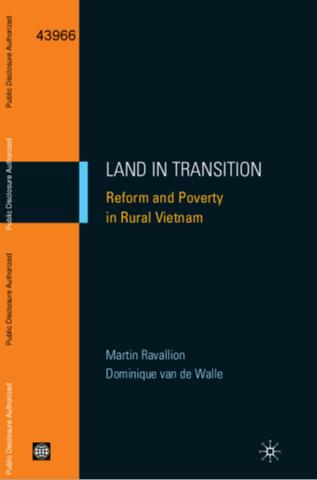Evaluation of the Permanence of Land Use Change Induced by Payments for Environmental Services in Quindío, Colombia
The effectiveness of conservation
interventions such as Payments for Environmental Services
(PES) is often evaluated, if it is evaluated at all, only at
the completion of the intervention. Since gains achieved by
the intervention may be lost after it ends, even apparently
successful interventions may not result in long-term
conservation benefits, a problem known as that of
permanence. This paper uses a unique dataset to examine the


